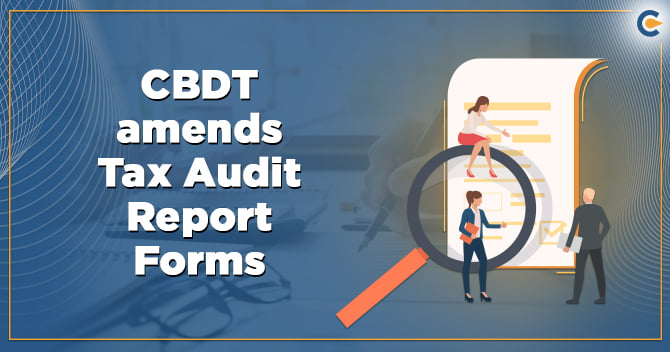The nation had been looking forward to the Union Budget for FY 2024-25 for a while. Following the buzz around multiple speculations on what could be the investment priorities and layout for Modi government 3.0, Finance Minister Nirmala Sitaraman finally unveiled India’s fiscal plan for the coming year on July 23. Ever since then, there have been a lot of discussions on what the budget offers to the various classes of India.
Focus Areas under Union Budget 2024-25
The Finance Minister Nirmala Sitaraman highlighted the focus points of the government for the coming year. These sectors include 9 major significant areas-
- Employment & Skilling
- Manufacturing & Services
- Infrastructure
- Urban Development
- Innovation, R&D
- Energy Security
- Human Resource Development & Social Justice
- Productivity and Resilience in Agriculture
- Next Generation Reforms
Now, to understand the impact and aftermath of the latest union budget announcements, here are a few major takeaways you should know about.
Takeaways of Union Budget 2024
Tax
Announcing changes in the new tax regime, Finance Minister Nirmala Sitharaman has said that the standard deduction will be increased from Rs 50,000 to Rs 75,000.
The new income tax slab rates are as follows:
- From income 0 to 3 lakhs – nil
- From income 3 lakhs to 7 lakhs – 5%
- From income 7 lakhs to 10 lakhs- 10%
- From income 10 lakhs to 12 lakhs- 15%
- From income 12 lakhs to 15 lakhs- 20%
- For income above 15 lakhs – 30%.
For timely tax filing, it’s essential to get help from the experts.
Salaried employees in the new regime are going to save about Rs 17,500 in income tax.
Monetary limits, with regard to the filing of appeals about direct tax, excise, and service tax cases, will go up to Rs 60 lakh for Tax Tribunals, Rs 2 crore for High Courts, and Rs 5 crore for the Supreme Court.
Rationalization of social security: The deduction for employer contribution towards the NPS will be increased from 10% to 14% of the salary of the employee.
Now, the TDS rate for e-commerce operators will be reduced from 1 percent to 0.1 percent, and in addition to that, credit for TCS will be given in TDS on salaries.
Stock Market
Under long-term capital gains, income tax would be levied at the rate of 12.5 per cent, with exemption limited to Rs 1.25 lakh per annum. STT on futures would increase from 0.0125 per cent at present to 0.02 per cent, and for options from 0.0625 per cent to 0.10 per cent.
The 20 per cent TDS on repurchase by MF or UTI is proposed to be withdrawn. Tax on short-term capital gains on some assets will be levied at the rate of 20 per cent. Unlisted bonds and debt mutual funds will remain taxed at applicable rates.
Corporate Tax
For the next fiscal year, corporate tax has been reduced from 40 to 35%.
Angel Tax
A great sigh of relief for startups and investors as FM announced the abolishment of the Angel Tax. This move will create a conducive environment for startups to raise funds. For fundraising support, expert guidance is required.
Telecom
- The duty on printed circuit board assemblies, or PCBA, for some telecom equipment will rise by 10-15%.
- The duty on mobiles and its parts and accessories, including mobile PCDA, chargers, is proposed to be reduced to 15%.
Customs
Import duty on gold and silver is to come down from 15% to 6%.
Capital gains from the sale of property and real estate would be taxed now at the new LTCG rate of 12.5%—without getting the benefit of indexation—instead of the earlier 20% with indexation.
Real Estate
Such capital gains, arising from the sale of property and real estate, would now be subjected to the new LTCG rate of 12.5% sans indexation benefit, which used to be 20% with indexation.
Climate Finance
The government is all set to develop a taxonomy in the context of climate finance. It intends to extend support to improve the availability of funds. The purpose is to encourage climate change adoption and reduction in greenhouse gas emissions. The government will prepare a blueprint for aviation, shipping, chemicals, iron and steel, and a strategy to meet energy-efficient targets.
Agriculture and Allied Sectors
- Allocated Rs 1.52 lakh crore to the agriculture sector
- Shed light on a new cluster scheme to encourage vegetable production
- Planning to conduct a digital Kharif crop survey in 400 districts
- Public support-centric Kisan Credit Cards to be issued in 5 states
- Financial assistance to form a network of breeding centres for fish, shrimp, and broodstock
- Encouraging the production and marketing of oilseeds
- Establishment of 10,000 requirement-based bio-input centers
Infrastructure Development
Announcement of Rs 1.5 lakh crore interest-free loans for infrastructure development over the next 5 years in states. Private sector investment will be facilitated through viability gap funding. Overall, the FM announced an expenditure of approximately 3.4% of India’s GDP for investments in infrastructure.
Empowerment of Tribal Communities
- Announcement of Janjatiya Unnat Gram Abhiyan to bring positive transformation in the socio-economic conditions of tribal communities in India
- This programme will cover 63,000 tribal villages
- It is likely to benefit 5 crore tribal people
- Funds of Rs 13,000 crore have already been allocated to the tribal affairs ministry this year
- The budgetary allocation has been increased by 70% during the Union Budget presentation
Conclusion
The above-mentioned takeaways were everything you needed to know about the union budget tax regime for FY2024-25. The debates around the impact of the latest budget have already spiced the Indian political ecosystem.
A strong impact was also seen on the stock market post the budget presentation. Hopefully, the next fiscal blueprint by FM would be taking India and its GDP to new heights.
Frequently Asked Questions
What are the changes made in Corporate Tax under Union Budget 2024-25?
For the next fiscal year, corporate tax has been reduced from 40 to 35%.
Is the Angel Tax abolished after the union budget 2024-25?
Yes, Finance Minister Nirmala Sitaraman announced the abolishment of the Angel Tax in the coming fiscal year.
If my income is below 5 lakhs. Do I need to file an ITR and pay taxes?
The new tax rates are as follows: 0-3L – 0%, 3-7L – 5%, 7-10L – 10%, 10-12L – 15%, 12-15L – 20%, above 15L – 30%. Hence, any individual earning more than 3 lakh per annum is obligated to file an ITR.
Which product costs would be affected by the union budget 2024-25?
Following the aftermath of tweaks made in custom duties, mobile phones, gold, and silver-based product prices would be coming down. Also, medications related to cancer treatment, solar energy-based equipment, and seafood products would see a drop in cost.
On the contrary, equity investments kept for less than a year, ammonium nitrate, and non-biodegradable plastic-related products will observe a spike in prices.
Read More Article – Income Tax Slab Rates For 2024











